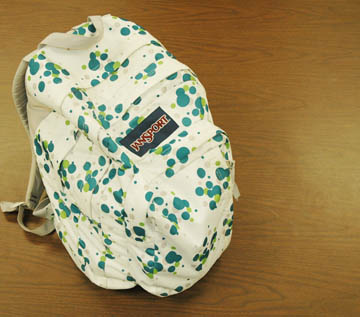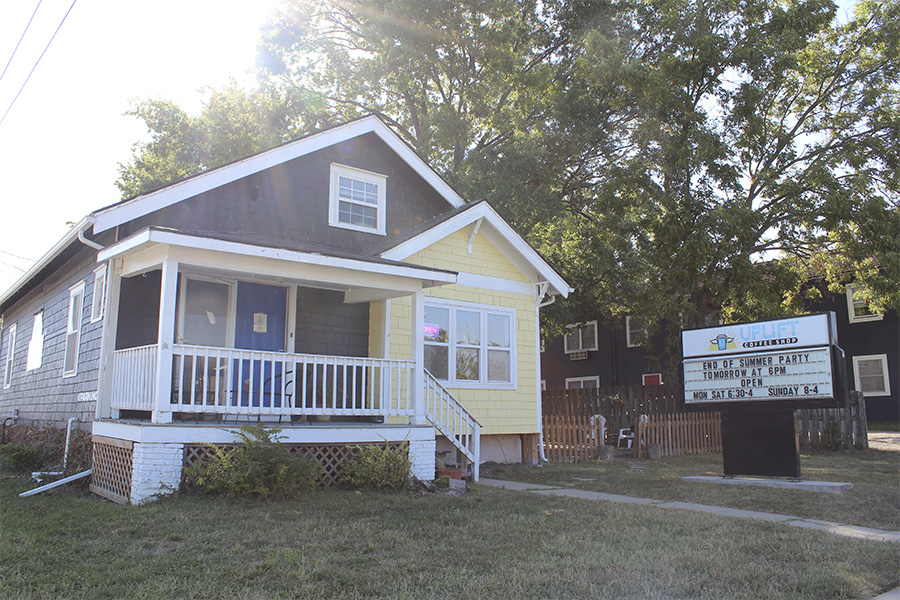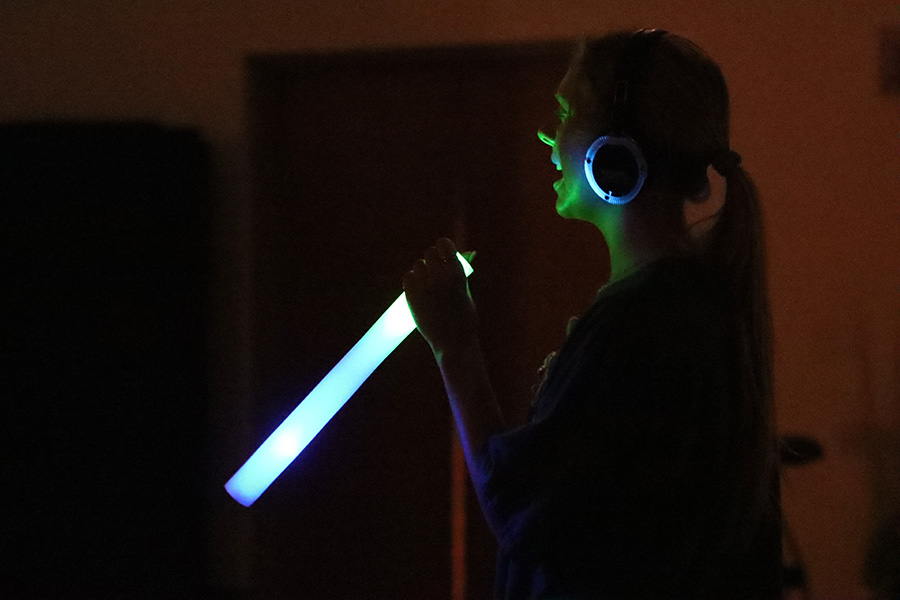Saying students carry the weight of the world on their shoulders might not be as big of an overstatement as it seems.
Dr. Jeremy Rodrock, Baldwin City chiropractor, said students should only carry about 15 percent of their body weight in their book bags.
He said carrying too much weight around or not toting the proper type of backpack can cause problems like muscle strain, lower back injury and postural deformities. He said the main thing that happens is all the weight causes students to lean forward.
“You do that for long enough time periods and you can start slouching,” Rodrock said.
Rodrock said students should look into buying certain types of backpacks to better distribute the weight. Although they aren’t popular, rolling backpacks are ideal.
The other option would be backpacks that go over both shoulders. They should cover about 75 percent of the student’s back. The straps should be thickly padded, and waist straps help as well.
“You should keep it fairly snug so it doesn’t hang below your belt,” Rodrock said. “It should be a couple inches above your belt line.”
Senior Erin Blackburn said she used to carry a messenger bag but switched to use an actual backpack.
“It holds more, so I can carry more around,” Blackburn said.
She said she’s used the same one for a while because good backpacks are so expensive.
Rodrock said another large problem for students comes when they strain themselves picking up their backpacks.
"Picking them up and swinging them around can cause injury," Rodrock said. <br/>Freshman Erica Vest said one time, her backpack was so heavy, when she went to pick it up, she fell over backward.Freshman Erica Vest said one time, her backpack was so heavy, when she went to pick it up, she fell over backward.
Freshman Erica Vest said one time, her backpack was so heavy, when she went to pick it up, she fell over backward.
Ruth Sarna, director of student health services, said many students have come into her office with back issues that were traced to carrying a backpack that was too heavy or the wrong kind.
“Sometimes they even walk in here with this huge, huge bag and I go, ‘Wait a minute,'” she said.
When students come into her office with back problems, Sarna allows the doctor to examine them and usually sends them to one of the physical therapy centers in town.
Rodrock said some of the ways he treats back problems is by doing strengthening exercises, electric muscle stimulations and massage therapy.
Sarna said some good things for students to do if they think they are experiencing back pain because of their heavy backpacks is some easy stretching, anti-inflammatory medication, a hot shower and exercise that doesn't involve a large backpack full of books. <br/>Rodrock said there usually isn't a lot of severe pain involved with carrying around a heavy backpack, but a few cases are more serious and have resulted in pinched nerves.Rodrock said there usually isn't a lot of severe pain involved with carrying around a heavy backpack, but a few cases are more serious and have resulted in pinched nerves.
Rodrock said there usually isn’t a lot of severe pain involved with carrying around a heavy backpack, but a few cases are more serious and have resulted in pinched nerves.
Blackburn said she hasn’t had as much trouble with carrying too many books in college as she did in high school, mostly because she has the option of leaving some books home.
“I think in college you get in the habit of knowing what books you need,” Blackburn said.
Vest said the first few weeks of classes she overloaded her backpack but has since figured out that she doesn’t need all of her books all of the time.
“I’ve had to learn what type of teachers they are and when not to carry around unnecessary stuff,” Vest said.







